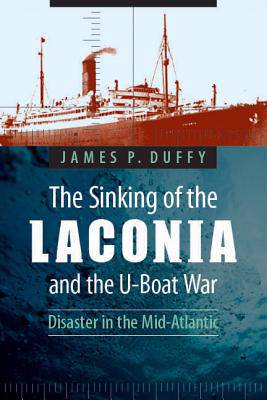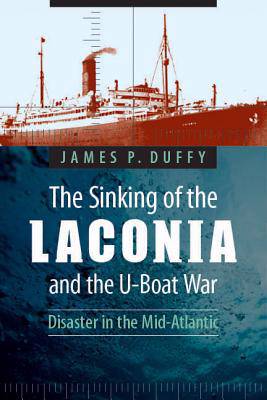
- Retrait gratuit dans votre magasin Club
- 7.000.000 titres dans notre catalogue
- Payer en toute sécurité
- Toujours un magasin près de chez vous
- Retrait gratuit dans votre magasin Club
- 7.000.000 titres dans notre catalogue
- Payer en toute sécurité
- Toujours un magasin près de chez vous
The Sinking of the Laconia and the U-Boat War
Disaster in the Mid-Atlantic
James P DuffyDescription
Packed with rich detail and analysis of what often transpired when merchant ships were sunk by U-boats, this dramatic book highlights the hazards of World War II at sea. At its center, James P. Duffy relates the story of the sinking of the British liner Laconia by the German U-boat U-156.
On September 12, 1942, as Laconia sailed crowded with 1,800 Italian prisoners of war, 103 Polish soldiers, 286 mostly severely wounded British military personnel, 80 civilians, and 463 officers and crew, she was hit by two torpedoes fired by U-156. Laconia's captain ordered the vessel abandoned, and within an hour, she sank. Perhaps surprisingly, the German U-boat then surfaced and sent a signal that brought two other U-boats, an Italian submarine, and three Vichy French warships to assist with rescue operations.
The rescue operation by German ships and the subsequent bombing raid by Allied aircraft are both compelling stories and events that had major repercussions for the conduct of the war. In the wake of the incident, German admiral Karl Dönitz issued instructions known as the Laconia Order demanding that all attempts to rescue survivors from Allied merchant ships be ended. The order provoked an international outcry against inhumane treatment of survivors stranded at sea. After the war, Dönitz was charged with and acquitted of war crimes in connection with this order.
Spécifications
Parties prenantes
- Auteur(s) :
- Editeur:
Contenu
- Nombre de pages :
- 152
- Langue:
- Anglais
Caractéristiques
- EAN:
- 9780803245402
- Date de parution :
- 01-04-13
- Format:
- Livre broché
- Format numérique:
- Trade paperback (VS)
- Dimensions :
- 152 mm x 229 mm
- Poids :
- 231 g







